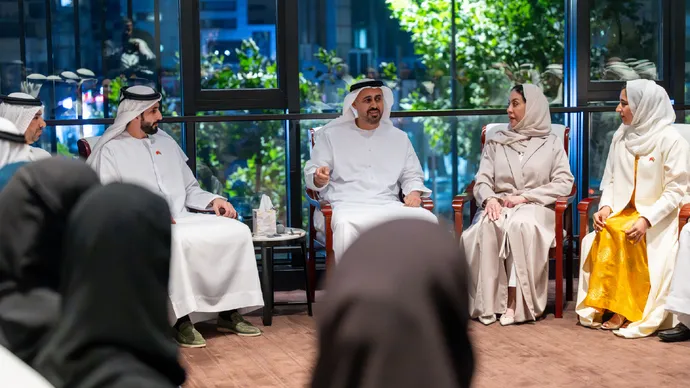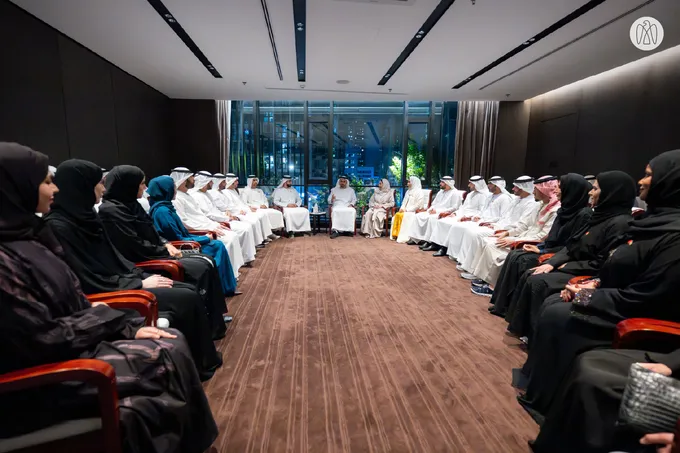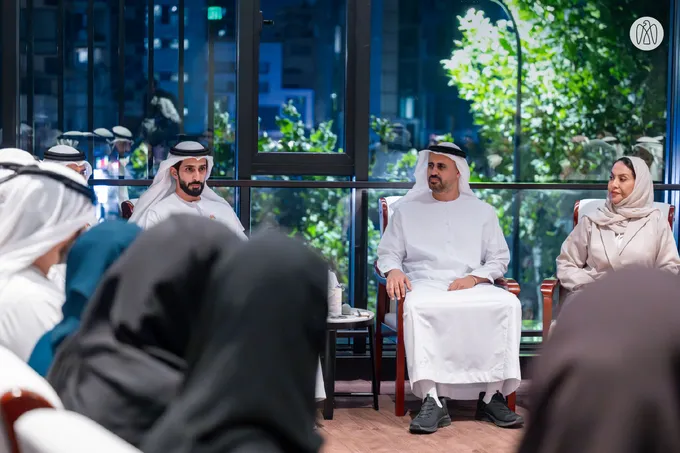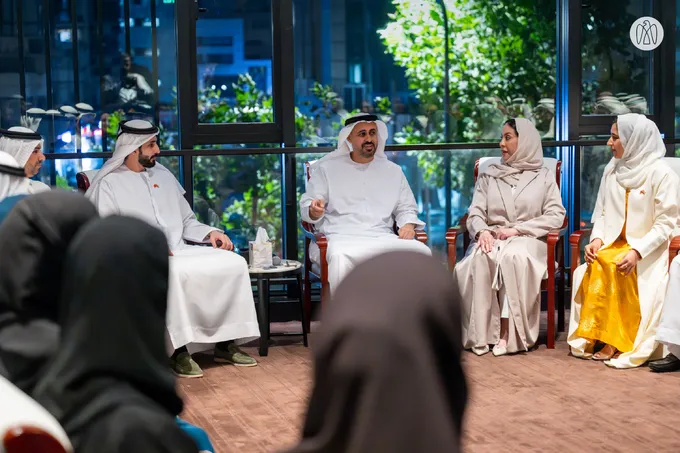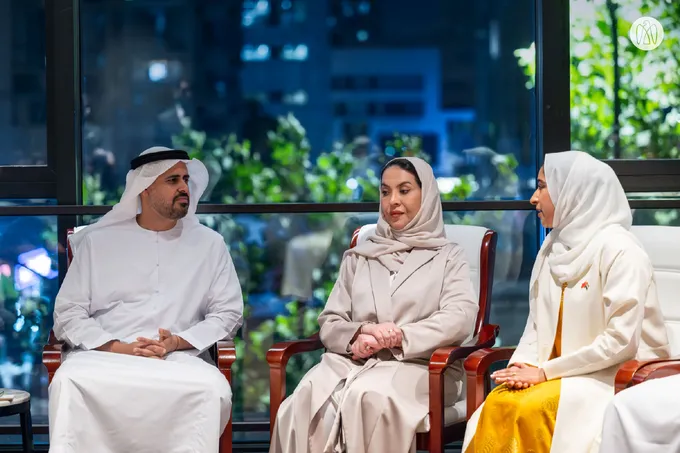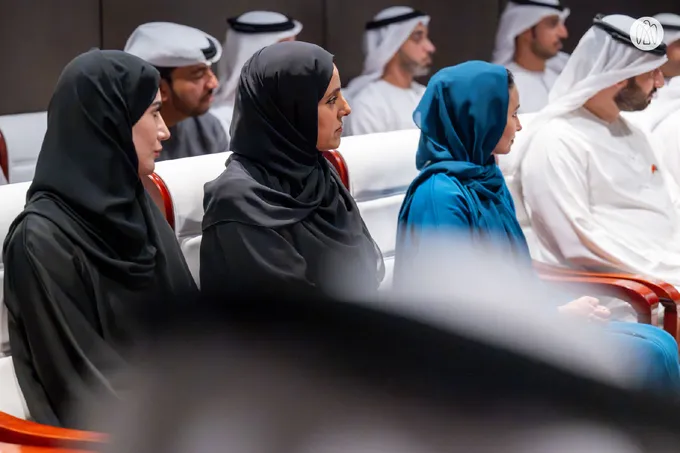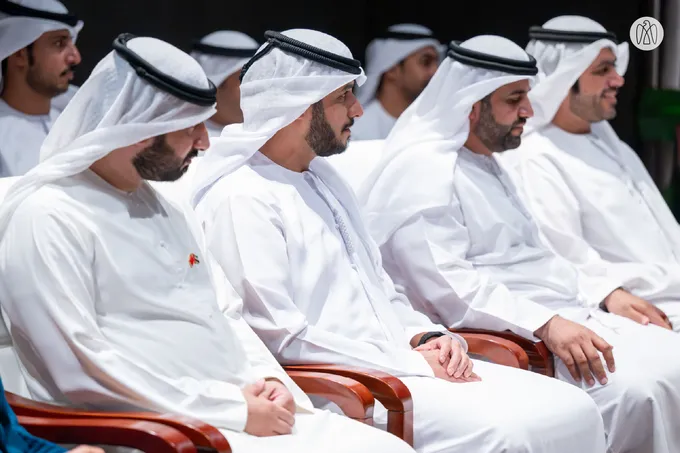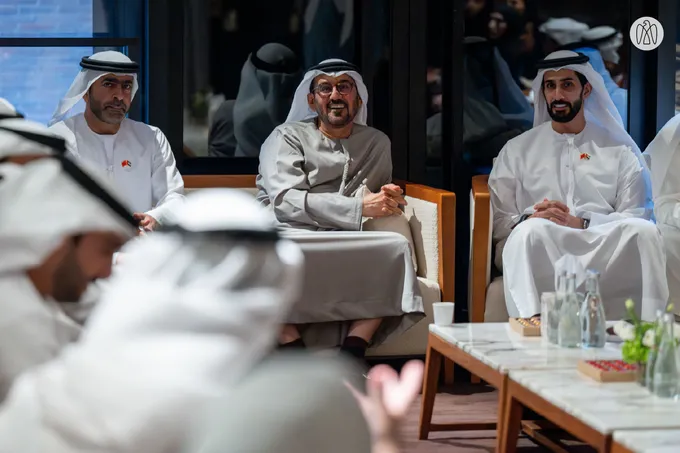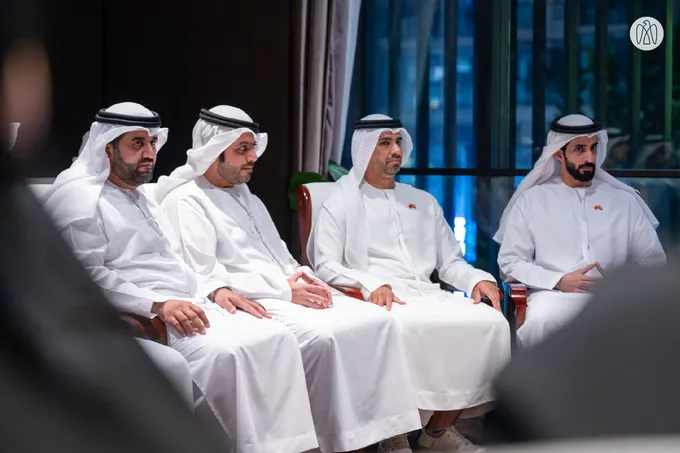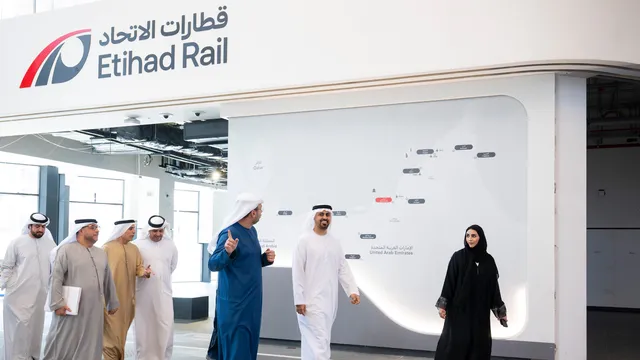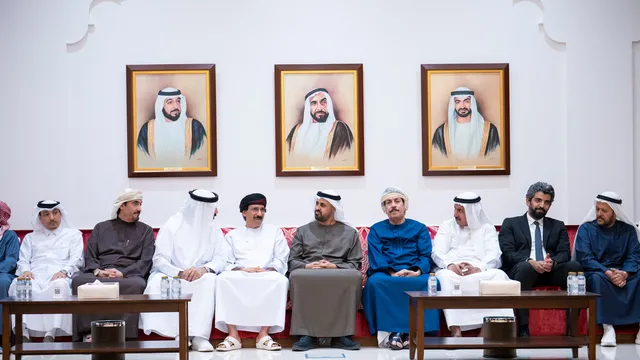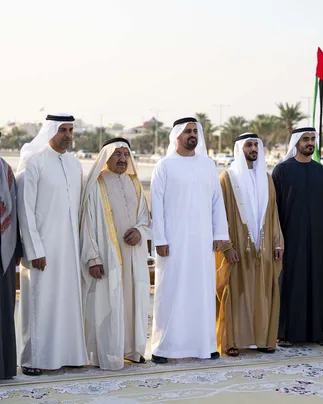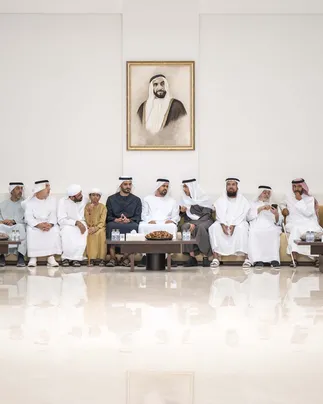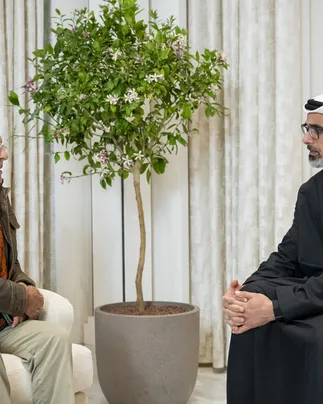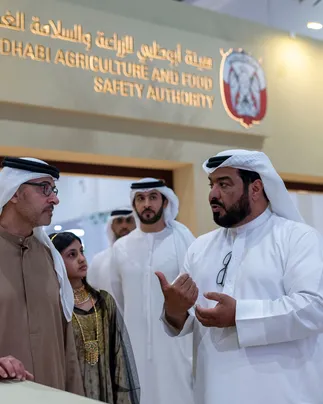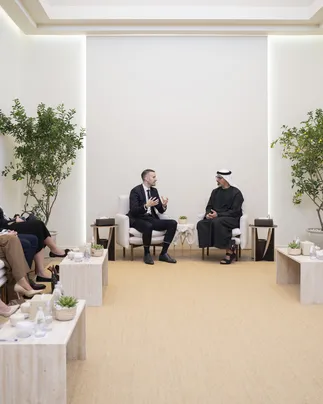His Highness Sheikh Theyab bin Mohamed bin Zayed Al Nahyan, Deputy Chairman of the Presidential Court for Development and Fallen Heroes’ Affairs, has met with participants of the First UAE Second-Tier Leadership Executive Program in China, held from 21 October until 4 November 2025 under the theme Bridging Nations, Building Leaders. The programme brought together 30 officials representing 24 federal and local government entities.
His Highness was briefed on the programme’s key objectives, which focused on deepening mutual understanding and strengthening cooperation between the UAE and the People’s Republic of China across various sectors. It also aimed to enhance the capabilities of second-tier Emirati leaders by exploring Chinese models in governance, innovation, economic growth, education, and sustainability, while encouraging participants to build effective professional networks with Chinese leaders, experts, and officials to foster future collaboration between the two nations.
His Highness Sheikh Theyab bin Mohamed bin Zayed Al Nahyan affirmed that this programme, along with similar initiatives, embodies the UAE leadership’s vision of investing in its people and empowering them with global knowledge and expertise that supports the nation’s ongoing development and progress. His Highness noted that the programme represents an integrated strategy to prepare and qualify national talent for future leadership, thereby reinforcing the UAE’s global standing and enhancing government performance and efficiency.
His Highness expressed confidence that the participants will serve as active ambassadors of UAE–China cooperation in future-oriented fields.
His Highness also commended the efforts of the organising entities, foremost among them the Embassy of the United Arab Emirates in Beijing, for implementing the programme in partnership with the Chinese People’s Association for Friendship with Foreign Countries (CPAFFC) and with the direct support of the Ministry of Foreign Affairs of China, noting that such initiatives contribute to preparing a new generation of leaders capable of building bridges of cultural and economic exchange between the two countries.
Participants of the programme were introduced to China’s experience in governance, innovation, sustainable economic development, education, technology, artificial intelligence, and creative industries, as well as green development and sustainability practices. The programme also included field visits to a number of academic, technological, and economic institutions in Beijing and the Fujian Province.


